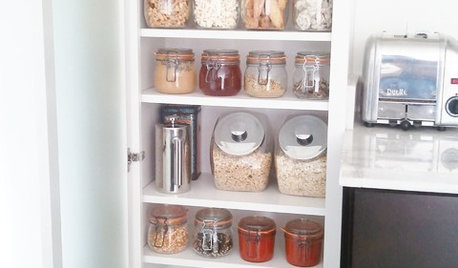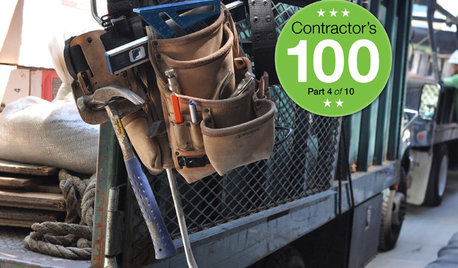do you agree with these FL tips?
phrog
10 years ago
Related Stories

HEALTHY HOME6 Tips From a Nearly Zero-Waste Home
Lower your trash output and increase your quality of life with these ideas from a mom who did it to the max
Full Story
LIFE11 Apartment Hunting Tips for Renters
Land the right new rental home the smart way, with this insight to help you focus, organize and avoid surprises
Full Story
SELLING YOUR HOUSE9 Tips for Selling Your House in Winter
Make your home stand out to buyers in a challenging season by upping its coziness and showing its potential
Full Story
HOUSEKEEPING10 Tips to Streamline Laundry Day
Little adjustments to your attitude and routine can help take the wrinkles out of doing the wash
Full Story
ARCHITECTURE5 Tips for Working Virtually With Your Architect
Whether you're across the country or around the corner, PDFs, screen sharing and more can make collaborating with a designer a smart move
Full Story
MEDIA ROOMS5 Tips to Turn Your Basement into a Media Room
From wiring to gadgets to decor, a designer tips us off to the secrets for media room success
Full Story
ATTICS7 Tips to Convert Your Attic Into an Extra Living Room
If "Keep it down; I'm trying to read!" or fights over the remote are de rigueur, it might be time to turn your attic into a second hangout
Full Story
DECORATING GUIDESTop Tips From a Green Interior Designer
Ecofriendly homes can do more than tread lightly on the earth. They can be stylish and comfortable too, says this top-notch green designer
Full Story
REMODELING GUIDESContractor Tips: What Your Contractor Really Means
Translate your contractor's lingo to get the communication on your home project right
Full StoryMore Discussions










dadoes
kon45
Related Professionals
Frankfort Kitchen & Bathroom Designers · Moraga Kitchen & Bathroom Designers · Philadelphia Kitchen & Bathroom Designers · San Jose Kitchen & Bathroom Designers · Paducah Kitchen & Bathroom Remodelers · North Massapequa Cabinets & Cabinetry · Kaneohe Custom Closet Designers · Roswell Custom Closet Designers · North Charleston Custom Closet Designers · Medway Custom Closet Designers · Bend Flooring Contractors · Branford Flooring Contractors · Davie Flooring Contractors · Lynnwood Flooring Contractors · Riverbank Flooring ContractorsphrogOriginal Author
jstagaman
mrb627
phrogOriginal Author
whirlpool_trainee
georgect
dave1812
rococogurl
homepro01
herring_maven
larsi_gw
phrogOriginal Author
dianne47
phrogOriginal Author
dave1812
rococogurl
dianne47
dave1812
herring_maven
herring_maven
larsi_gw
phrogOriginal Author
georgect
phrogOriginal Author
dave1812
dadoes
herring_maven
dave1812
CharterOps
herring_maven
dave1812
rococogurl
phrogOriginal Author
rococogurl
ronaka
erinsean